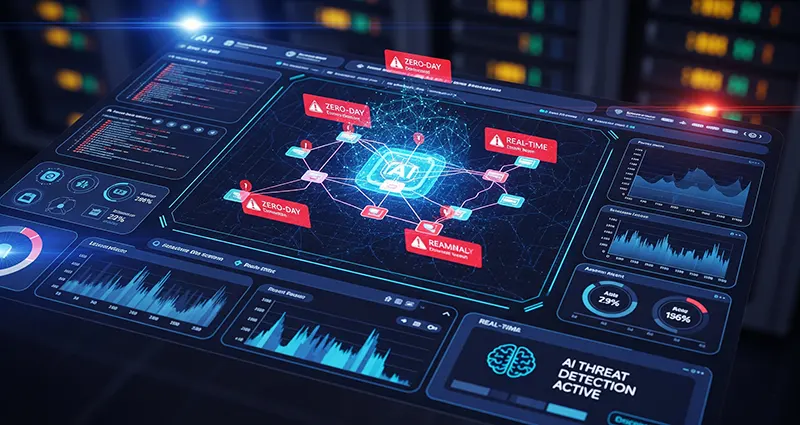In the rapidly evolving landscape of cybersecurity, enterprise networks face continuous threats that challenge traditional defense mechanisms. Among these threats, zero-day attacks represent some of the most dangerous and elusive vulnerabilities. Leveraging artificial intelligence (AI) for real-time zero-day threat detection has become a pivotal strategy to enhance enterprise security and stay ahead of cyber attackers.
Understanding Zero-Day Threats
Zero-day threats refer to previously unknown security vulnerabilities that hackers exploit before developers can create patches or fixes. Because there is no existing signature or defense mechanism, zero-day attacks can cause significant damage, leading to data breaches, system downtime, and financial losses.
The Challenge of Detecting Zero-Day Threats
Traditional security solutions, such as signature-based antivirus and intrusion detection systems, rely on known threat patterns. These methods struggle to identify zero-day attacks as they have no historical data or signatures to reference. This limitation necessitates advanced, adaptive, and intelligent detection techniques.
How AI Transforms Zero-Day Threat Detection
Artificial intelligence, particularly machine learning and deep learning, enables enterprise security systems to analyze vast amounts of network traffic and user behavior in real-time to identify anomalies indicative of zero-day threats.
1. Behavioral Analysis
AI models are trained to understand the baseline behavior of network entities—users, devices, and applications. Deviations from these patterns, such as unusual login times, irregular data transfers, or unexpected access to sensitive files, trigger alerts for potential zero-day exploits.
2. Anomaly Detection
AI-driven anomaly detection algorithms can sift through terabytes of network data, identifying patterns that deviate from the norm without relying on signature databases. This capability is crucial for recognizing new and unknown threats as soon as they appear.
3. Threat Intelligence Integration
AI systems learn from global threat intelligence feeds and update their models dynamically, enhancing their understanding of emerging attack techniques related to zero-day exploits.
4. Automated Response
Some AI-powered platforms incorporate automated mitigation strategies that isolate affected systems or limit malicious activity immediately after detection, minimizing the attack’s potential impact.
Benefits for Enterprise Networks
- Proactive Defense: AI enables enterprises to detect and respond to zero-day threats faster than ever, reducing the window of vulnerability.
- Scalability: As enterprise networks grow, AI systems can scale to monitor increased traffic volumes without loss of detection accuracy.
- Reduced False Positives: Advanced AI models improve detection precision, lowering false alarms and allowing security teams to focus on genuine threats.
- Continuous Learning: AI adapts to new threats by continuously learning from evolving data, ensuring ongoing protection against sophisticated attacks.
Implementation Considerations
- Data Quality: Effective AI models require access to high-quality and diverse data, including network logs, endpoint data, and user behavior metrics.
- Integration: AI solutions must seamlessly integrate with existing security infrastructure such as SIEM (Security Information and Event Management) systems.
- Expert Oversight: While AI automates many tasks, skilled cybersecurity professionals are essential to interpret AI findings and develop comprehensive defense strategies.
- Privacy and Compliance: Enterprises must ensure that AI-based monitoring complies with data privacy regulations and internal policies.
Future Trends
The fusion of AI with other emerging technologies like edge computing and blockchain is expected to further strengthen zero-day threat detection. Additionally, advances in explainable AI (XAI) will provide clearer insights into AI decision-making processes, boosting trust and adoption.
Using AI for real-time zero-day threat detection in enterprise networks represents a powerful advancement in cybersecurity. By enabling proactive, adaptive, and scalable defense mechanisms, AI helps organizations mitigate risks posed by unknown vulnerabilities effectively. As cyber threats continue to grow in sophistication, integrating AI-driven solutions will be indispensable for maintaining enterprise security and resilience.











